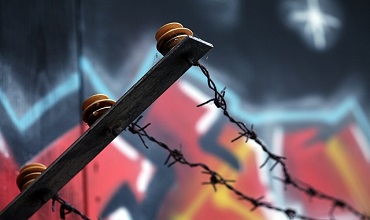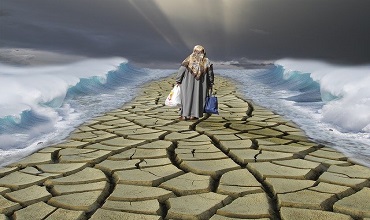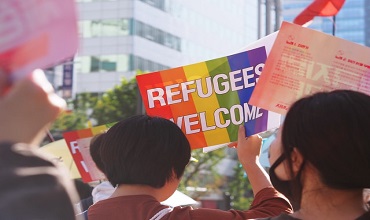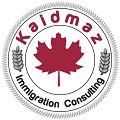Are you facing fear of persecution and you don’t know?
Every person is allowed to protection from fear of persecution. The right to life, freedom and security of the person is also preserved in the Canadian Charter of Rights and Freedoms. Immigration services for individuals and families, in need of Canadian Immigration help and representation at Immigration, Refugees and Citizenship Canada and or Immigration Refugee Board. Bringing refugees to Canada from outside of the country is known as resettlement. Immigration, Refugees and Citizenship Canada (IRCC, formerly CIC) resettles individuals and families based on referrals from the United Nations High Commission for Refugees (UNHCR), other referral organizations, and private sponsorship groups.
Visit our firm for more details.

To be granted asylum in Canada as a refugee, a person must be outside his or her home country and have a well-founded fear of persecution. According to the Geneva Convention, “The Geneva Convention was a series of international diplomatic meetings that produced a number of agreements, in particular the Humanitarian Law of Armed Conflicts, a group of international laws for the humane treatment of wounded or captured military personnel, medical personnel and non-military civilians during war”. Fear must not only be well-founded, the persecution must also be based on reasons of race, nationality, religion, membership of a particular social group or political opinion. The following circumstances can make a person a refugee:
- A woman who is subjected to repeated physical abuse by her husband in a country where marital violence is overlooked.
- A member of an ethnic group who is maltreated by the state.
- A teacher in a country where intellectuals are condemned as traitors of the people.
- A person who openly criticizes a rebel group in a country where the government cannot protect its citizens against rebel attack.
- A person who is persecuted because he is suspected of opposing the government, even though he is not politically active.
- The child of an imprisoned political leader who is viewed as a threat by the current regime.
- The witness of a killing dedicated person by the military that the government wants to cover up.
- A student activist after the government has blocked a student movement.
- A human rights activist who is persecuted by the state for her criticism of government abuses.
- A union leader who is threatened with violence by businesses who enjoy tacit support from the government.
- A gay man or lesbian who is beaten up by gangs of homophobic criminals in a country that outlaws homosexual acts (Note: The government of Canada affords LGBTQ2 individuals and couples the same rights and opportunities as other persons when it comes to immigration issues).
- A member of a religion who is being suppressed by the government.
Individuals who have a refugee claim rejected, abandoned or withdrawn may eventually apply for a Pre-Removal Risk Assessment (PRRA). This is in opportunity for people who are facing removal from Canada to seek protection by describing, in full writing, the risks they believe they would face if removed.
Contact us for additional info. We are here to help 24/7.
Refugee Claim Process

Refugee claims are complex and there is always a lot at stake. It is always advisable for people seeking refugee protection to be represented by a competent immigration consultant in this particular area. Refugee Status application processing times vary from one Canadian Immigration Visa office to another:
- Government sponsored refugees
- Privately sponsored refugees
- Dependants of refugees
Government sponsored refugees

Government assisted refugees are Convention Refugees Abroad whose initial resettlement in Canada is entirely supported by the government of Canada or Quebec. This support is delivered by non-governmental agencies identified by the government of Canada or Quebec. Support can last up to one year or more from the date of arrival in Canada, or until the refugee is able to support himself or herself, whichever happens first. It may include:
- accommodation
- clothing
- food
- help in finding employment and becoming self-supporting
- settlement program
- other resettlement assistance
The processing time for Government-assisted refugees varies but is generally based on how long it took Immigration, Refugees and Citizenship Canada (IRCC) to process most complete applications in the past 12 months.
Privately sponsored refugees

Privately sponsored refugee application processing times are based on the latest/current information available from Canadian immigration authorities.
The Private Sponsorship of Refugees Program helps thousands of refugees every year. Individuals or groups in Canada may sponsor international refugees who are eligible to come to Canada. Sponsors provide financial and emotional support for the refugees for the duration of the sponsorship.
This includes help for housing, clothing and food. Most sponsorship periods last for one year, but some refugees may be eligible for assistance from their sponsors for up to three years if need be.
Refugees must qualify for entry under Canada’s laws, this includes passing medical and security screening checks before they can come to Canada. Privately sponsored refugees include the following:
- Group of five
- Community sponsors
- Sponsorship agreement holders and their constituent groups
In most cases, the processing time for privately sponsored refugees varies as it is based on how long it took Immigration, Refugees and Citizenship Canada (IRCC) to process most complete applications in the past 12 months.
Contact Kaidmaz Immigration Consulting for more information on Refugees claim process.
